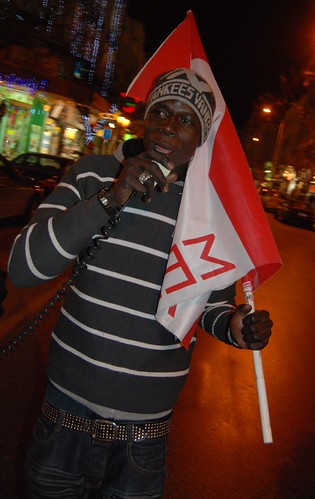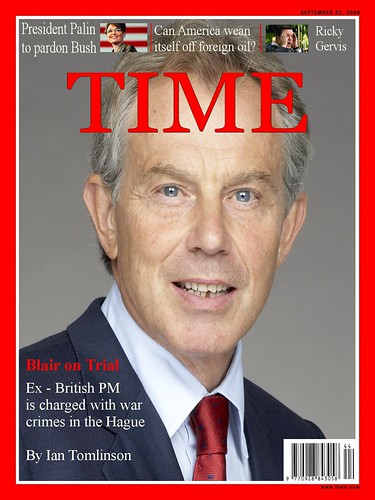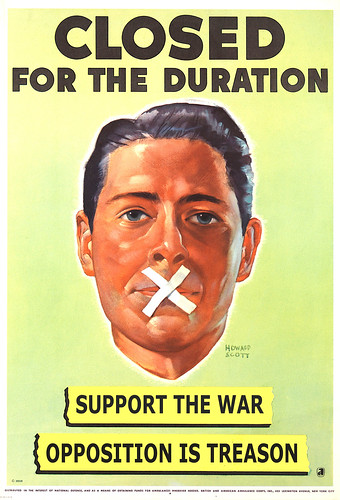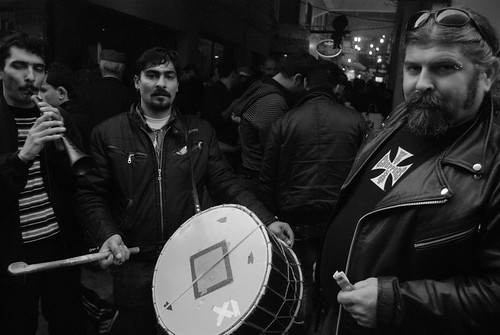To listen to some international accounts of the current debt crisis you might be forgiven for thinking that the 300 billion euros Greece owes has been used to fund some kind of Balkan version of a Scandanavian welfare state. That the money has been spent on funding an unsustainably generous social safety net.
However, even a brief visit to the country's decrepit hospitals and threadbare schools is enough to disabuse even the most casual observer that that the huge mountain of debt accumulated has been used to improve the lives of the poorest Greeks.
While in theory Greece has a welfare state that compares with other EU members the reality is that much of this provision is of low quality or non-existent. As a result of such systematic deficiencies people are forced to pay for services that other Europeans take for granted. Few, if any student entering the countries universities have got there without massive investment of time and money by parents in the form of expensive extra tuition.
Similarly, medical treatment in the country's supposedly free health care system costs billions in terms private charges and bribes.
Instead most of the money has simply evaporated in a miasma of corruption and incompetence which sees that any public service contract almost invariably goes over cost and requires double ot triple the time originally alloted.
Case in point is the underground system being built in the northern port city of Thessaloniki which started 45 months ago and already is 32 months behind schedule. That number is set to rise as the Itallian construction company which won the countract has announced that it will fire 80% of its employees in March if it does not receive extra funding.
On the other hand the country Greece's bloated public sector can still afford to pay some of its better connnected employees 16 salaries per year. Those luckily to be employed by parliament are paid for 16 months work annually. At the other end of the spectrum tens of thousands often wait months or years to be paid wages owed.
Giorgos Papandreou has been working hard over the last week at the Davos World Economic Forum to try and persuade fellow Europeans and international economic markets that the his newly elected socialist government can reign in spending and raise more revenue. However, how much influence a system that his party has been instrumental in setting up and maintaining over the last 30 years is open to doubt.
For the last four decades both left and right have used the public sector as a way of gaining and maintaining voter loyalty by handing out jobs and contracts in return for political support. As a result the country's infrastructure has been manned not by the brightest or the best but the most faithful.
Entry and progress depend not on competence but on maintaining the myriad of personal, family and political connections that form the basis on any succesful career in Greece.
With unemployment predicted to hit one million in 2010 conflict and clashes between social groups unwilling to make sacrifices and a government unable to pay seem unavoidable. Already farmers have blockaded much of the country's transport network in order to demand one billion euros in funding and sweeping changes in agricutural policy.
























Blair's detention on route to the EU conference on Middle East Security and Safety in Zurich severely strained UK – Dutch relations with some Conservative members of parliament even calling for the air strikes on military targets within the country if the former leader was not released. In the days that followed hundreds of businesses and organisations with ties with the Netherlands were attacked throughout America with three Dutch citizens losing their lives in bomb attack on the country's London embassy
Not surprisingly, it has been the question of the sense and the legitimacy of the trials that is the center of attention for many eyewitnesses. Despite the lack of a legal precedent, most of them approve of the proceedings because, as U.S. writer Gore Vidal put it, "warmongers will no longer be able to live quietly in retirement." Some observers, however, have remained skeptical. Iraqi writer Salah Wali considered the indictment "bizarre" and British diplomats in Brussels have privately admitted that the British didn't "enter the war with clean hands. No nation could have done so."
The defendant, who await the world's judgment in varying postures of resentment, resignation, and revolt, is another focus for most members of the press. "While the counsel for the prosecution reads UK documents about the killing of Iraqis and Afghans," railed Polish reporter Pawel Osmanczyk, enraged by the prisoner's deliberate display of boredom, "Blair yawns, or just pretends to be asleep."
Fascination for and disappointment about the banality of the man who helped in the possible murder of thousands of people also appear in the accounts of the reporters witnessing the proceedings. "Involuntarily one desires to see a greater man," wrote Australian journalist John Pliger, "who have to stand trial for all the cruelties which are spread out before the court." Afghan opposition leader, Abdullah Abdullah remarked incredulously: "He is so insignificant that you ask yourself: Was it really this degenerate who laid my country to waste... ?"
Read more: www.time.com/time/world/article/0,8599,174037,00.html#ixz...